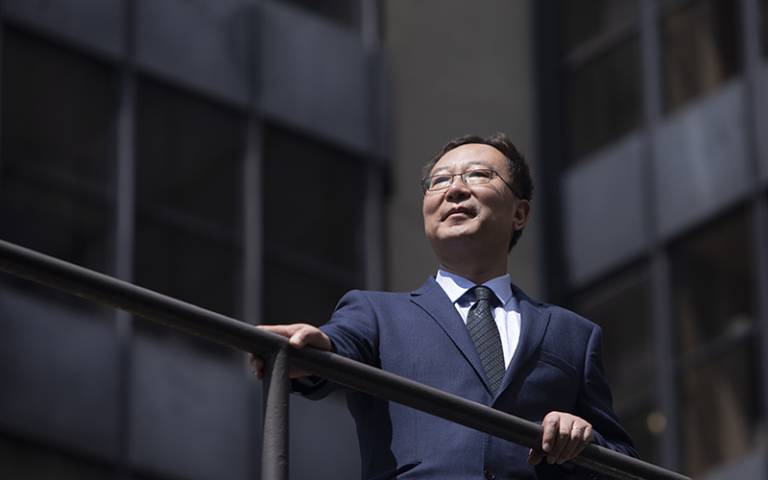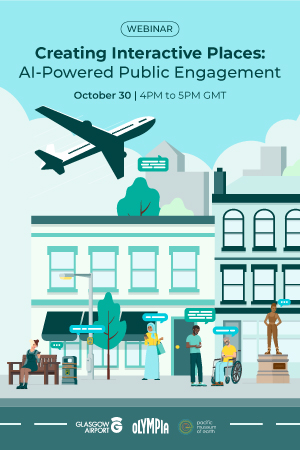UCL IOE - Faculty of Education and Society
|
|
How do we reinvigorate language learning for the benefit of culture and society?
Professor Li Wei, UCL IOE Director and Dean and Professor of Applied Linguistics, reflects on the transformative powers of language learning and how IOE works to spread these benefits.

Professor Li Wei. Credit: John Cobb.
The European Day of Languages, celebrated annually on 26 September, raises awareness of the importance of language learning in order to enhance the linguistic diversity that has always existed across Europe and to improve intercultural understanding.
This is exactly what academics at IOE working in this field aim to achieve through our research, teaching and consultancy.
We believe that language learning is a process of cultural translation. For us, language learning is about learning different ways of meaning and sense-making. Language practices, such as the use of address terms, making requests, disagreeing, choosing which language or dialect to use with different interlocutors, and indeed mixing different languages, vary from community to community and gain different symbolic values, because of the different histories and developmental trajectories, and language policies and ideologies. Translation and adaptation are therefore needed. Following Robert J. C. Young, by ‘translation’, we mean ‘a way of thinking about how languages, people, and cultures are transformed as they move between different places’. Cultural translation is about bringing values and practices that have evolved in a specific community to another community so that members of both communities can interact with each other to achieve a certain level of understanding. Language teaching and learning therefore needs to go beyond mechanical learning of sounds, words and sentences, to engage in meaningful interaction.
Given the linguistic and cultural diversity of the learner population in today’s schools and universities, we believe that inclusive and dynamic pedagogies such as translanguaging – where students are encouraged to work across multiple languages simultaneously – are key in achieving success in language teaching and learning. We believe that having successfully mastered their first language, and in the cases of children from multilingual families and communities, multiple first languages, every learner can be a successful second/additional language learner. Translanguaging raises metalinguistic awareness and encourages positive engagement with what Moll et. al. term ‘funds of knowledge’ of the learner’s first language(s) as well as their cultural pragmatic knowledge, to promote creativity, critical thinking and cultural and sociolinguistic sensitivities.
IOE academics have been engaged in numerous research projects in language learning for decades. For example, colleagues in the Centre for Applied Linguistics were part of the AHRC Translating Culture’s programme and led the London part of the Translation and Translanguaging project. Our staff led the British Academy special project on the cognitive benefits of language learning. We have also led several projects on complementary schools for home, heritage and community language learners and family language policy in multilingual and intercultural families.
Our Department of Culture, Communication and Media is home to a diverse range of activities, all of which aim to promote intellectually rigorous, practically relevant and interdisciplinary intercultural studies that advance understanding of the role of language and culture in society, education and communication, and inform intercultural practices and policies. It runs a large PGCE programme in languages of Outstanding quality (Ofsted, 2024), covering French, German, Spanish and Mandarin. It also runs a large MA in Intercultural Communication, led by its International Centre for Intercultural Studies (ICIS). IOE has been leading the Mandarin Excellence Programme since 2016 that has transformed language teaching in schools through its innovative curriculum, pedagogy and cultural activities. We are now leading the Department of Education-funded Languages Hub initiative through our National Consortium for Languages Education (NCLE), with a firm focus on developing capacity and subject leadership for language teaching in schools.
In partnership with schools and cultural institutions, we will endeavour to reinvigorate language education in Britain through our distinctive philosophy and approach that empowers the teacher and enables the learner in our joint pursuit of increasing the nation’s multilingual and intercultural capacity.
Professor Li Wei
UCL IOE Director and Dean
Links
- International Centre for Intercultural Studies
- Languages PGCE
- Intercultural Communication MA
- Mandarin Excellence Programme
- National Consortium for Languages Education
- AHRC Translation and Translanguaging project
- British Academy Cognitive Benefits of Language Learning project
- ESRC Family Language Policy project
- Department of Culture, Communication and Media
Original article link: https://www.ucl.ac.uk/ioe/news/2024/sep/how-do-we-reinvigorate-language-learning-benefit-culture-and-society


